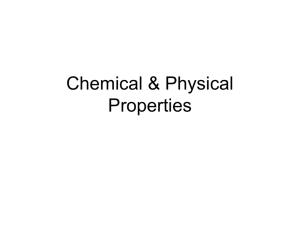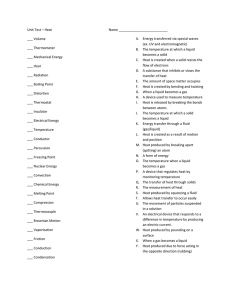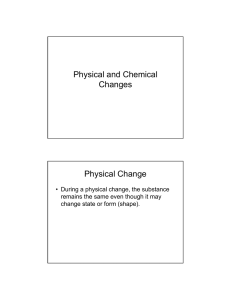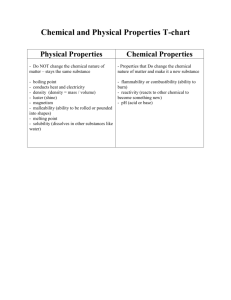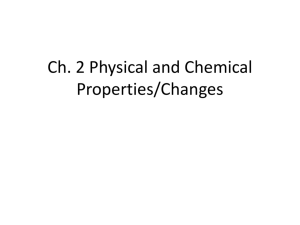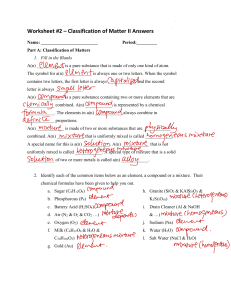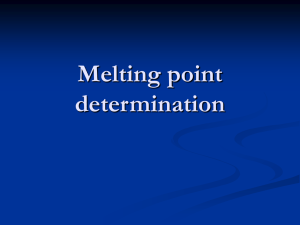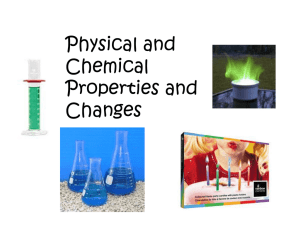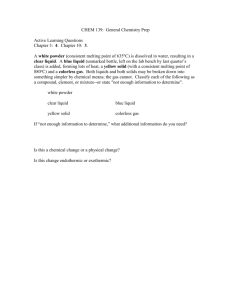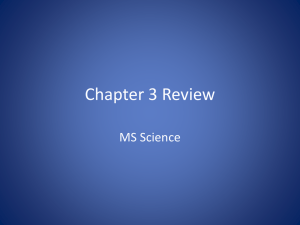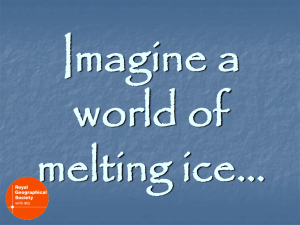Ms. Logue Physical & Chemical Changes Science 9 Please Do Not
advertisement
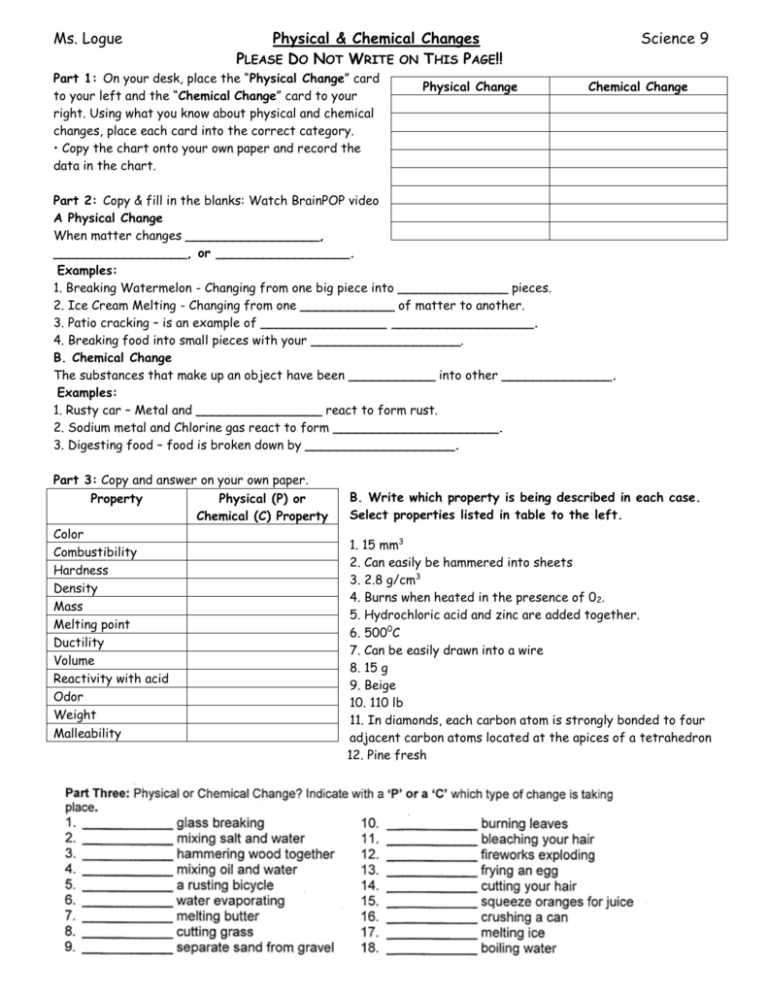
Ms. Logue Physical & Chemical Changes PLEASE DO NOT WRITE ON THIS PAGE!! Part 1: On your desk, place the “Physical Change” card to your left and the “Chemical Change” card to your right. Using what you know about physical and chemical changes, place each card into the correct category. • Copy the chart onto your own paper and record the data in the chart. Physical Change Science 9 Chemical Change Part 2: Copy & fill in the blanks: Watch BrainPOP video A Physical Change When matter changes _________________, _________________, or _________________. Examples: 1. Breaking Watermelon - Changing from one big piece into ______________ pieces. 2. Ice Cream Melting - Changing from one ____________ of matter to another. 3. Patio cracking – is an example of ________________ __________________. 4. Breaking food into small pieces with your ___________________. B. Chemical Change The substances that make up an object have been ___________ into other ______________. Examples: 1. Rusty car – Metal and ________________ react to form rust. 2. Sodium metal and Chlorine gas react to form _____________________. 3. Digesting food – food is broken down by ___________________. Part 3: Copy and answer on your own paper. Property Physical (P) or Chemical (C) Property Color Combustibility Hardness Density Mass Melting point Ductility Volume Reactivity with acid Odor Weight Malleability B. Write which property is being described in each case. Select properties listed in table to the left. 1. 15 mm3 2. Can easily be hammered into sheets 3. 2.8 g/cm3 4. Burns when heated in the presence of 02. 5. Hydrochloric acid and zinc are added together. 6. 5000C 7. Can be easily drawn into a wire 8. 15 g 9. Beige 10. 110 lb 11. In diamonds, each carbon atom is strongly bonded to four adjacent carbon atoms located at the apices of a tetrahedron 12. Pine fresh
